If you locate a run-on sentence and find where the two independent clauses "collide," you can decide how best to separate the clauses. Fixing run-on sentences is very similar to fixing comma splices. You can make two complete sentences by inserting a period. You can use a semicolon between the two clauses if they are of equal importance; this allows your reader to consider the points together.
You can use a semicolon with a transition word to indicate a specific relation between the two clauses; however, you should use this sparingly. You can use a coordinating conjunction and a comma, and this also will indicate a relationship. Or, you can add a word to one clause to make it dependent. Once you discover where the two independent clauses are "spliced," there are several ways to separate them. You can use a coordinating conjunction following the comma, and this also will indicate a relationship.
A dependent clause can be nestled inside an independent clause. When a dependent clause is within the independent one, it's an interrupter. An interrupter simply breaks the flow of a sentence, and there are many different kinds, not just dependent clauses. An independent clause is a unit of grammatical organization that includes both a subject and verb and can stand on its own as a sentence. In the previous example, "I went running" and "I saw a duck" are both independent clauses, and "and" is the coordinating conjunction that connects them. The information between the commas could be lifted out of the sentences and these sentences would still make sense in terms of both grammar and meaning.
That is, taking out the dependent clauses would not negate the other parts of the sentence. The information may add details, but taking it out wouldn't change the major thrust of the sentence or have readers trying to figure out what was going on. The sentences without the nonessential words, phrases, and clauses can stand on their own. Some students are unfamiliar with the definitions and rules of clauses and punctuation, the basic building blocks of sentence structure. This problem does not show itself too much when you write in the first person voice ("I remember once . . .") because that is your natural idiom. In some ways, it seems like trying to write in a foreign language.
As you may recall from above, an independent clause has a subject and a verb and can stand on its own as a sentence. Often, a coordinating conjunction will connect two independent clauses — like the word "but." To combine two complete sentences/ independent clauses, you have two options. You can use a comma with a conjunction, or you can use a semicolon. If you use a comma and conjunction, the acronym FANBOYS will help you remember the conjunctions .
If you use a semicolon, you do not have to capitalize the first letter of the next sentence. I was taught that adding a comma before a conjunction that joins independent clauses is unbreakable law. I see this law broken all the time, especially in literature, and now in my young child's homework reading assignments.
I think I inconvenienced a beloved author by adding in all the missing commas, and now I feel insufferably pompous and perhaps ignorant about this rule. You state above that the commas can be omitted if the sentence is clear even without them. This was true in the case of the author whose work I read.
Commas can be used to separate independent clauses, but with the addition of a coordinating conjunctions . When correcting a comma splice, that is when joining two independent clauses with a coordinating conjunction, put the comma before and. David, you are indeed correct about not putting a comma between the two parts of correlative conjunctions. The only time such pairs should get a comma is if both parts contain independent clauses—Not only was Rico confused, but he was also excited. Keep in mind that while we were looking at commas with dependent clauses, we were specifically looking at adverbial clauses beginning with subordinating conjunctions. A dependent adverbial clause, or subordinate adverbial clause, is a clause that also acts as, or modifies, an adverb.
It cannot stand alone as its own sentence, so dependent adverbial clauses must be used as part of a larger sentence structure that contains an independent clause. Sometimes, we want to link two independent clauses together without using "and" or "but," or any other coordinating conjunction. In this case, there is no comma separating the two because we do not pause between them in speech. What makes a clause "dependent" is the "subordinating conjunction." Common subordinating conjunctions include "while," "because," and "although."
If, however, you were writing these sentences, you would need to determine what you wanted to say and then construct the sentence in a way that conveyed your meaning. The point is, you could make your dependent clause either essential or nonessential; both choices are valid for dependent clauses that follow independent ones. Because there are several types of dependent clauses—adjective, adverbial, and noun—this topic could get wordy if I tried to cover all of them. When joining two independent clauses, or clauses that could stand on their own as full sentences, place a comma before the conjunction.
If the second independent clause is very short, or if it is an imperative, the comma can be omitted. Coordinating conjunctions are conjunctions, or joining words, that are placed between words and phrases of equal importance. Used with coordinating conjunctions, commas allow writers to express how their complete thoughts relate to one another. They also help avoid the choppy, flat style that arises when every thought stands as a separate sentence.
Commas are necessary before a coordinating conjunction that separates two independent clauses. When you want to join two independent clauses, you need a conjunction or a semicolon. Often, two independent clauses can be joined with a conjunction, such as and, but, or, so, yet, or any other conjunction.
A comma is placed right before the conjunction in this type of complex sentence. A comma splice is a sentence that has two or more independent clauses joined only by a comma. To join two closely related independent clauses that are not joined by a coordinating conjunction.
Do Dependent Clauses Need Commas There is a comma in the fourth example because the dependent clause begins with although, an adverb of concession. Adverbs of concession include though, although, even though, and whereas. Use commas to introduce dependent clauses beginning with these words, even when the independent clause comes first. When an adverbial dependent clause comes before the independent clause, we put a comma after the dependent clause . We don't have to give any consideration to the topic of essential or nonessential—when the dependent clause comes before the independent, use a comma to separate them. While we can use dependent clauses as sentence fragments, most of the time we don't.
We usually pair them with at least one independent clause and create sentences. Or, you can simply write the two independent clauses as separate sentences. A run-on sentence occurs when two or more independent clauses fuse together without punctuation to separate them. Writers can give readers information that limits or otherwise modifies a main idea that follows. To do so, writers can use introductory words or introductory phrases.
These introductory elements can be one word or several. Common introductory elements include transition words and statements about time, place, manner, or condition. Both clauses are independent and could stand on their own as complete sentences. When they are joined in the same sentence, however, they must be connected with a comma and a coordinating conjunction.
To combine two independent clauses , use a semicolon or a comma and conjunction. This is the reason that dependent clauses are attached to independent clauses, giving us a complete understanding of what's happening. By the way, this post about commas with subordinate clauses is great! It may be a long time from now, but when I complete it, I will keep you in mind as a fiction editor.
Complex sentences are sentences that have two clauses. There can be two independent clauses , or an independent clause and dependent clause . Whether a comma is used between them depends on the types and positions of the clauses. Did you use adependent adverbial clause after an independent clause? Beware of putting a comma before "but" every single time. It should only be used when connecting two independent clauses .
Commas are needed before coordinating conjunctions, after dependent clauses , and to set off appositives. Another type of relationship between ideas that writers signal to readers with a comma is that of accumulation. Occurring at the end of a sentence, cumulative clauses hook up to a main clause and add further information. A run on sentence, which is also known as a fused sentence, is two or more independent clauses that are run together with no punctuation. A sentence is more than just a string of words with a subject and a verb.
It can also be defined as either an independent clause or a combination of independent and dependent clauses. ~ Use a comma to separate the dependent clause from the independent when it follows the independent one if the dependent clause is nonessential. Keep in mind, however, that many dependent clauses will be essential and will not require a comma. So to be able to place the comma correctly, you must be able to recognize a dependent clause or sentence.
This may be achieved by, for example, learning the most important conjunctions – the little words that tie together various sentence parts. Some important conjunctions for dependent clauses in Danish are words like at, når, da, fordi, som, om, mens, siden and så or the 'hv-words' like hvad and hvor. The last example does not have two independent clauses ; therefore, no comma is necessary. One of the most intimidating grammar concepts for writers is correct comma usage. Saying "I thought there should be one" or "There seemed to be a pause" is not a good reason for using a comma. Properly used commas are important because they help the reader; without them, a reader would often have to backtrack and reread a sentence to find the writer's meaning.
But — and it's a big but — your middle school teacher may have told you to always throw a comma before "but." Don't do that! You should only put a comma before "but" when connecting two independent clauses. Determining if the dependent clause is essential or nonessential can be tricky, but for nonessential in this construction, think parenthetical. When you use the comma , you are declaring the dependent clause nonessential. While a period ends a sentence, a comma indicates a smaller break. Some writers think of a comma as a soft pause—a punctuation mark that separates words, clauses, or ideas within a sentence.
A dependent clause is a clause that cannot stand as a sentence in its own right, such as before I left the parking lot. When a complex sentence contains a dependent clause like this one, a comma is not used unless the dependent clause comes before the independent clause. Is the dependent adverbial clause, and the mouse returned is an independent clause. Commas around nonessential phrases or clauses act like parentheses to bracket material that is not critical to the meaning of the sentence. The material may be interesting, but the main idea of the sentence would be clear without it. The first phrase could not stand on its own as a sentence, but when joined to the independent clause by the comma, the sentence is complete.
To join two closely related independent clauses and a transition. In our usual speech patterns, we sometimes place the dependent clause before the independent clause for emphasis. In that case, we tend to pause to let the listener know that we have changed the usual order. So, in writing we place a comma after the dependent clause when the order is reversed. First, when the independent clause contains a negative verb.
We use commas in such sentences to eliminate possible confusion. ~ The subordinating conjunction because, when it begins a dependent clause after an independent clause, usually gets no comma. Yet there are two instances when because is preceded by a comma in this sentence position.
~ While, when it means as, is simply a subordinating conjunction. However, when while means whereas, it is being used as an adverb of concession and would be preceded by a comma after an independent clause. A dependent or subordinate clause can't stand alone as a sentence. It does have a subject and a verb, but it doesn't convey a complete thought. It depends on other sentence elements to give it meaning.
The phrase "as well as" usually doesn't require commas unless it's part of a nonrestrictive clause. An appositive is a word or phrase that refers to the same thing as another noun in the same sentence. Often, the appositive provides additional information about the noun or helps to distinguish it in some way. If you could remove the appositive without changing the meaning of the sentence, it is said to be nonessential and should be set off with commas. If the appositive is necessary, it's said to be essential and it should not be set off with commas.
It would be fine to start the sentence with "fortunately" followed by a comma. The use of a comma has a lot to do with the clauses you're combining. A dependent clause at the beginning of a sentence usually needs a comma after it.
In the last example, you can see that a comma is necessary. Otherwise, the reader would read "When everyone had left the auditorium . Don't offset a phrase that gives necessary information to the sentence. Usually, commas surround a non-essential clause or phrase. For example, "The duck that attacked me scared my friend" doesn't require any commas.
Even though the phrase "that attacked me" describes "the duck," it provides essential information to the sentence. Otherwise, no one would know why the duck scared your friend. Clauses that begin with "that" are usually essential to the sentence and do not require commas. Commas always follow these clauses at the start of a sentence. If a dependent clause ends the sentence, however, it no longer requires a comma. Only use a comma to separate a dependent clause at the end of a sentence for added emphasis, usually when negation occurs.



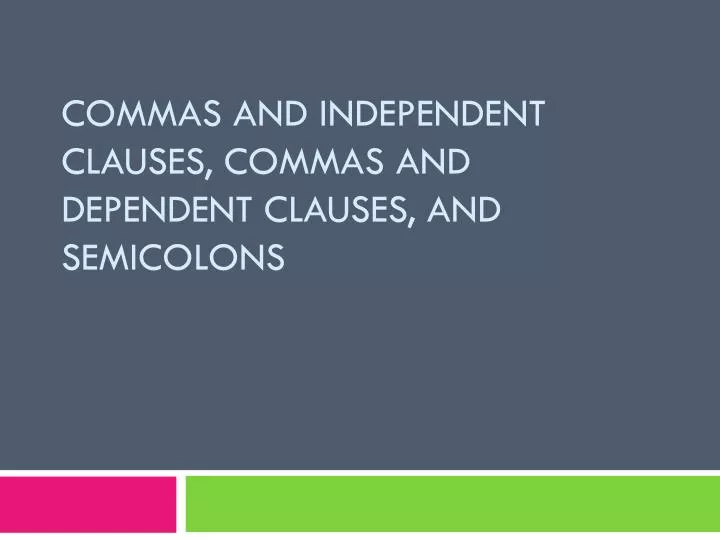

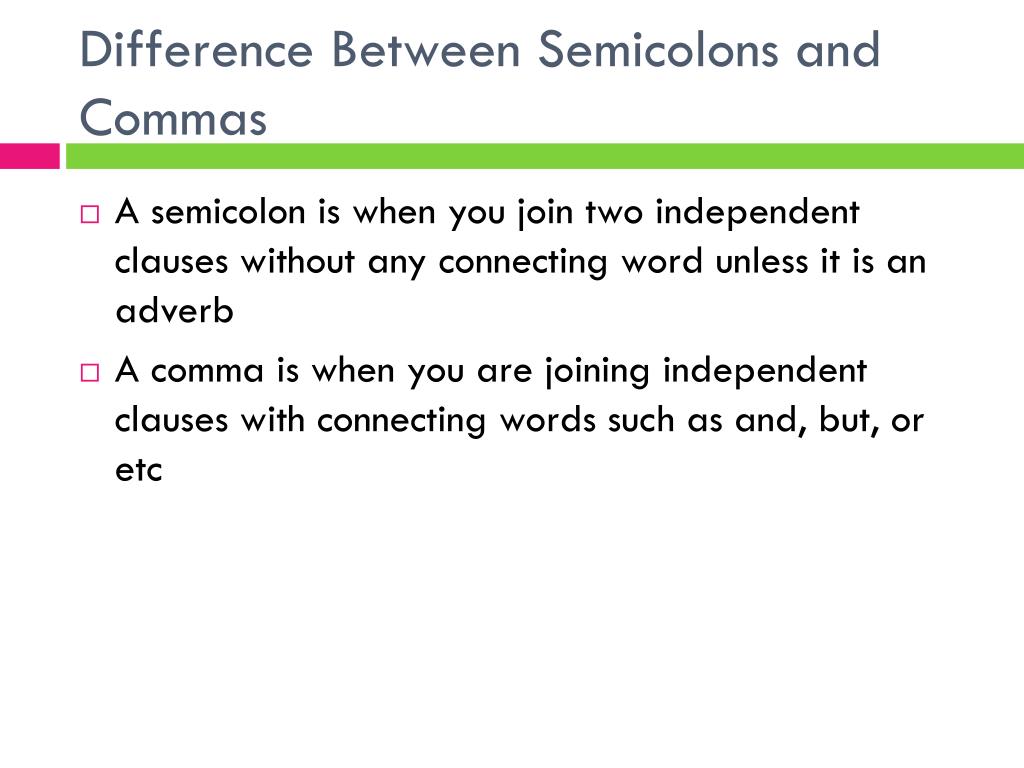
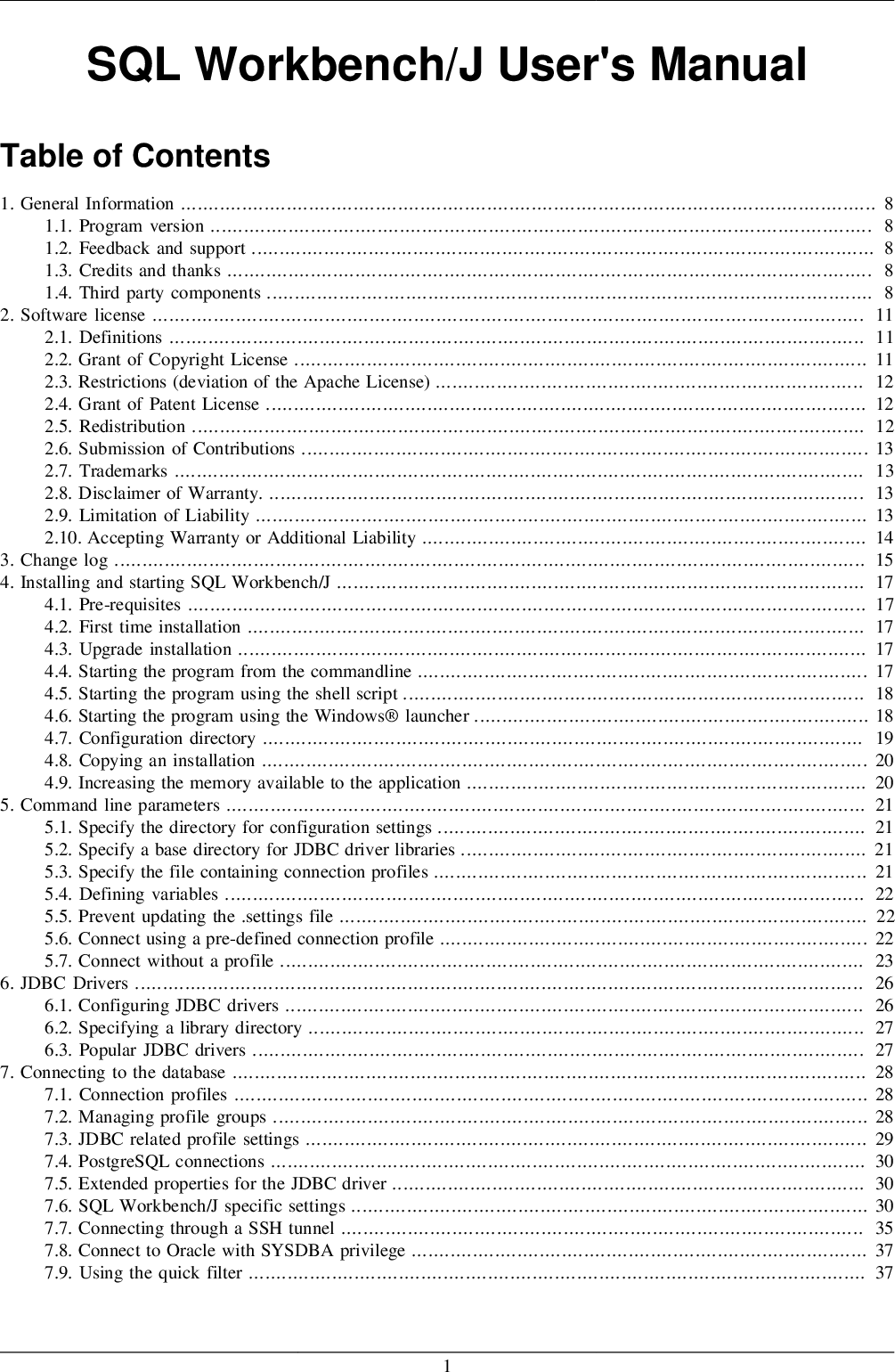
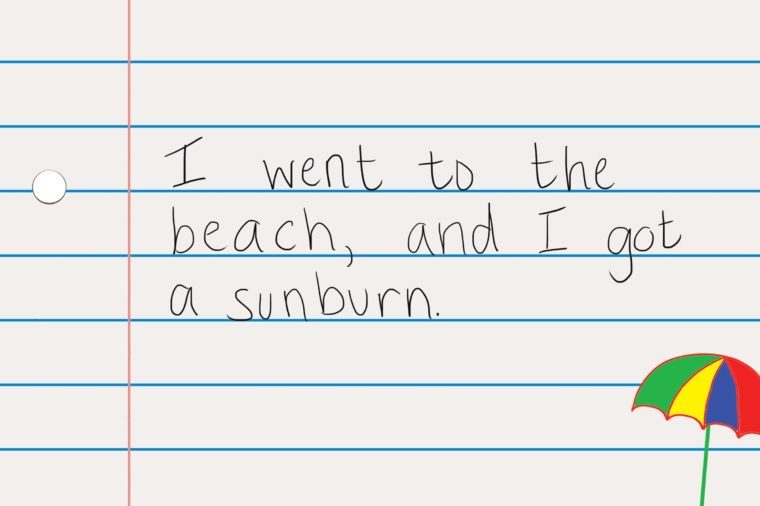



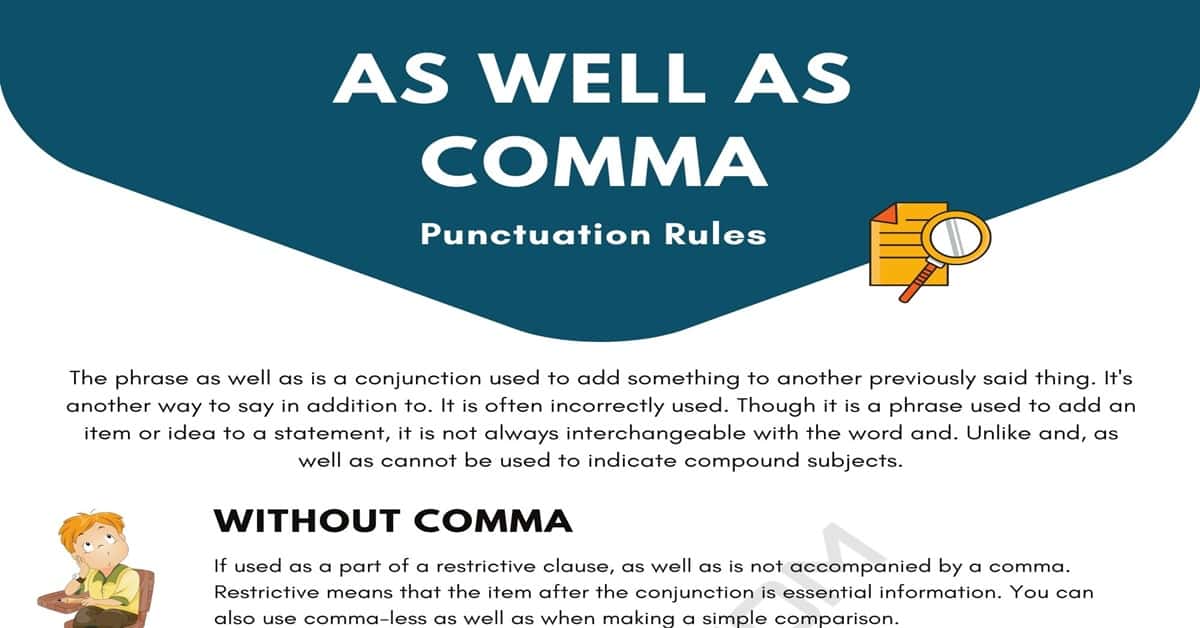














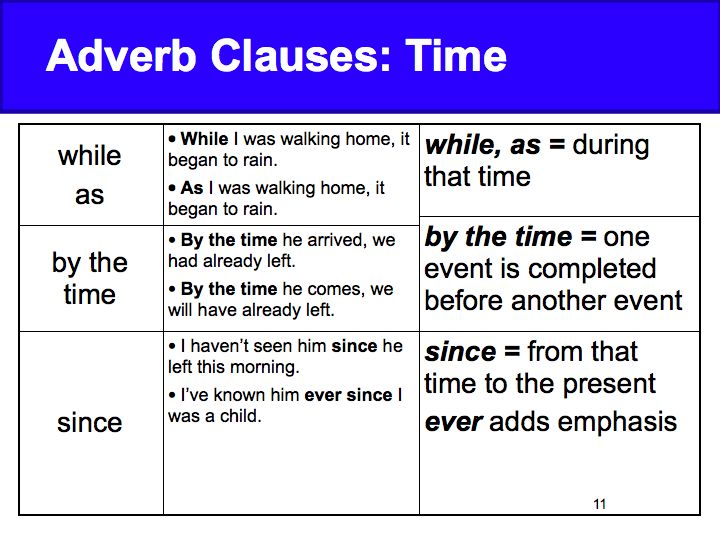


No comments:
Post a Comment
Note: Only a member of this blog may post a comment.